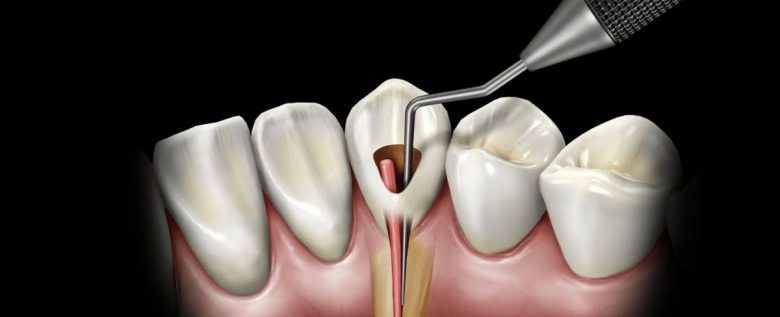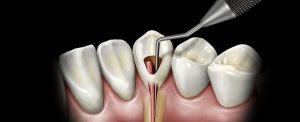What are the differences between a dentist and an endodontist? Endodontis are super trained dentists, it’s like the difference between a student and his teacher. While all endodontists are dentists, less than three percent of dentists are endodontists. Just like a doctor in any other field, endodontists are specialists because they’ve completed an additional two or more years of training beyond dental school. Their additional training focuses on diagnosing tooth pain and root canal treatment and other procedures relating to the interior of the tooth. In many cases, a diseased tooth can be saved with endodontic treatment.
The usual purpose of endodontics is to remove the infected pulp (or damaged nerve), sterilize the tooth’s roots and seal the area to protect it from future infections. Even when all of a tooth’s pulp must be removed, the tooth can remain alive indefinitely, nourished by nearby tissues. Endodontic treatment can allow you to retain your natural tooth for a lifetime. The visit starts with an examination, including X-rays, to evaluate the tooth for possible treatment. Electrical impulses may be used to test the tooth for sensitivity to heat, cold and pressure and to measure the pulp chamber and root canal system. A local anesthetic will be applied and the tooth will be isolated with a rubber dam. Treatment consists of the use of ultrasonic instruments and highly-refined files are used to remove the infected pulp and thoroughly cleanse and shape the pulp chamber. Medication may further sterilize the root canals. If there is an abscess, antibiotics may be prescribed. Read additional info Root Canal NYC.
Along with greater expertise, and the use of more sophisticated equipment, generally comes a greater ability to diagnose difficult cases. Since as a specialist they only perform endodontic procedures, you can anticipate that an endodontist will be quite adept in providing treatment. And that typically translates into your having shorter and/or fewer appointments. Research studies suggest that work completed by endodontists, especially for certain kinds of teeth, tends to have a higher success rate. It’s only logical to assume that a practitioner who has “seen it all before” will be more likely to be able to anticipate and successfully manage their patient’s pain-related problems.
At Endodontist NYC, our mission is to provide patients with the best endodontic care in a professional, compassionate and personalized manner, with an emphasis on using the most advanced technologies available in the field of endodontics. Dr. Mitrut believes it is of the utmost importance for you to be professionally cared for while receiving endodontic treatment. From the moment that you call his office, through the time of your treatment and aftercare, the doctor and his team will make you feel welcome, and will ensure that your needs are met. Dr. Cezar Mitrut received his Doctor of Dental Medicine degree and Certificate in Endodontics from the University of Pennsylvania, Philadelphia. Dr. Cezar Mitrut is an active specialist, member of the AAE (American Association of Endodontists). Read extra info Endo Dentist.
Dental tip of the day : If you have extrinsic discoloration/staining, start by trying a stain-removing toothpaste for a couple of weeks. Going for a stain-removing electric toothbrush can make a big difference here, too. Staining can also be removed during a professional teeth cleaning. If you have intrinsic yellowing, no amount of stain-removing toothpaste can lighten the inner color of the tooth. You’ll need to whiten your teeth using a bleaching gel that is held up against the teeth (but don’t run out to buy whitening strips quite yet!).


